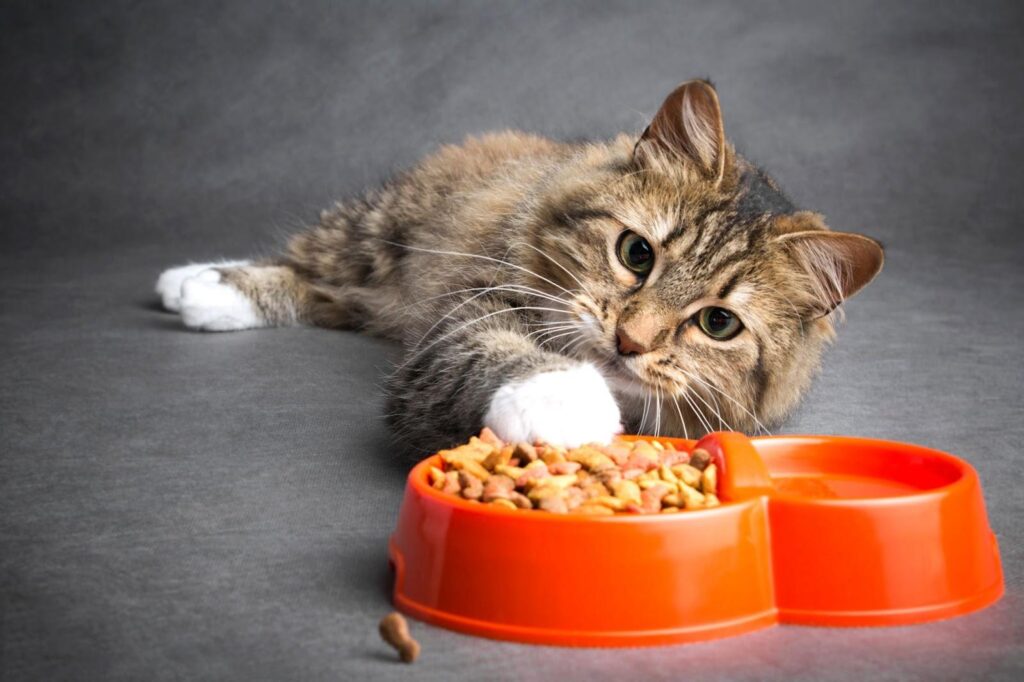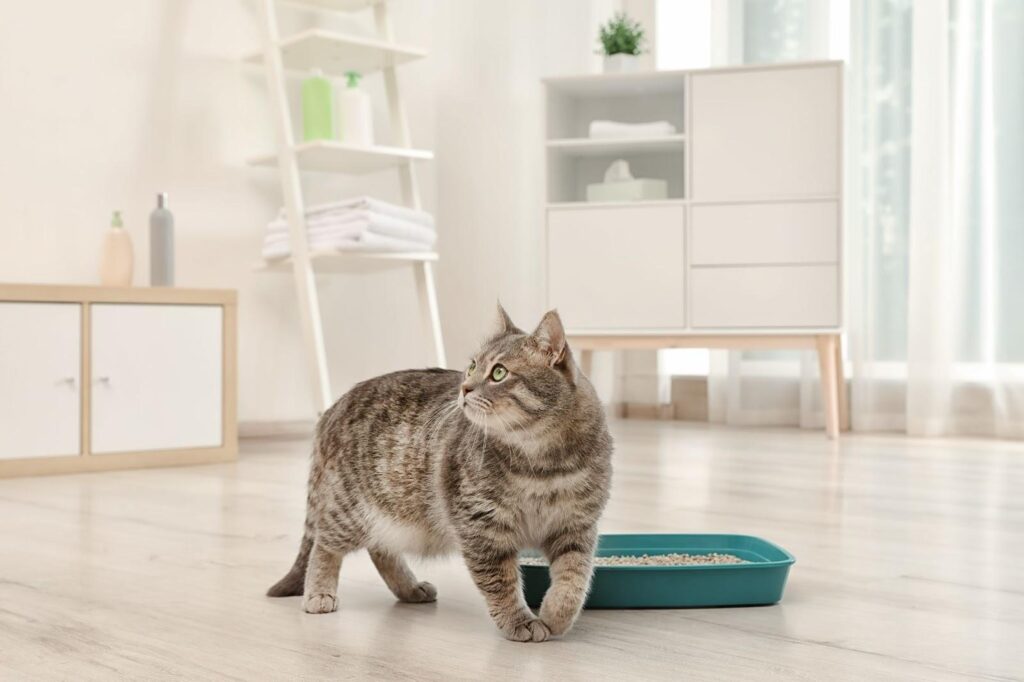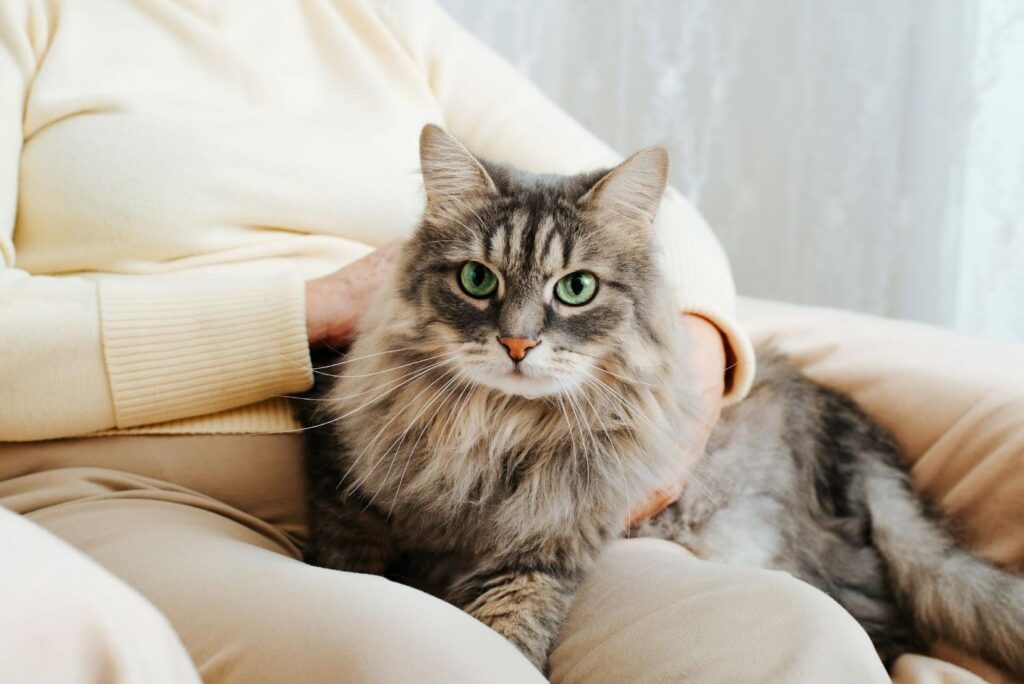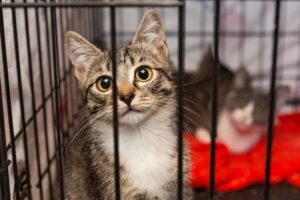Wondering how to care for your cat as he ages? Mighty Pet has the answers.
It goes without saying that we love our cats and want the best for them. But this means different things as they grow. As your cat ages, new challenges will arise. You may find yourself with questions about how to best care for a senior kitty.
We’ve put together this guide answering some of the most common questions we get asked about senior cat care. In this blog, you’ll find tips on how to keep your cat happy and healthy into his golden years.
How Old Is My Cat In Human Years?
When Is A Cat A Senior?
Adopting A Senior Cat
Senior Cat Care
Food For Senior Cats
Senior Cat Supplements
Toys For Senior Cats
Senior Cat Litter Boxes
How Old Is My Cat In Human Years?
Cats grow so much during kittenhood that their first two years of life are about the same as the first 24 years of a human life! After that, however, their growth rate slows, and each year is roughly equal to four human years. By the time your cat is 10, he’s about 53 in human years.
When is a Cat a Senior?
The American Academy of Feline Practitioners, a national society of feline veterinarians, classifies any cat over the age of 11 as a senior. However, most cats begin to show signs of aging between the ages of 7 and 10.
If your cat lives beyond the age of 15 (or 73 in human years), he’ll be considered a “super-senior.”
Adopting a Senior Cat
Adopting a senior cat is a beautiful choice, and one that will be infinitely rewarding for both you and your new pet.
Unfortunately, older cats tend to be overlooked at shelters. Potential adopters may fear health or temperament issues, or worry that they won’t get as many years with an older cat as they would with a kitten. In fact, these fears are often misguided, and there are many benefits to adopting a senior cat.
For one, adult cats have developed their personalities. Shelter staff can’t possibly know all of the quirks of a growing kitten, but there will be far less guesswork involved with an older cat. Adult cats have likely been exposed to other animals and children, and it should be clear what kind of home environment they’d be most comfortable in.

Secondly, older cats are usually more relaxed. Kittens have a lot of energy, and they’ll require a lot of energy from you in turn! They can be messy and destructive as they learn and grow. This can be fun for some families, but if you’re looking for a chilled-out kitty, then adopting a senior is a great choice. Laid-back senior cats are also more likely to snuggle and seek affection.
If you’re worried about an older cat’s health, the good news is, modern veterinary science can tackle many of the most common problems in older cats. Senior cat care is not as challenging as you may think. Taking your senior cat to the vet once every six months rather than once a year may be all you need to do to keep his health in check.
Finally, adopting a senior pet is just a kindhearted thing to do. No animal should spend their golden years lonely and waiting for a home. Senior cats have just as much love to offer as their kitten sheltermates, and they’ll be so grateful to you for taking a chance on them.
Senior Cat Care
Food for Senior Cats
Senior cats do not need as many calories as growing kittens or active adults, but they certainly need to keep up on important nutrients. Much like older humans, senior cats need plenty of protein but should watch their sodium consumption. It may seem like a lot to keep track of, but thankfully, you don’t have to do it on your own.

Brands like Hill’s Science Diet, NutriSource, and other leading cat food brands offer plenty of balanced formulas for your senior cat’s needs. Leave the calculations to the experts and pick up a bag of senior formula cat food at your local pet store. If your cat has any special dietary needs, you can always consult your vet for more specific guidelines.
Senior Cat Supplements
Like humans, cats can combine their daily food intake with additional supplements to improve their overall health. Supplement offerings for senior cats look a lot like those for senior humans, because they have many similar needs! Common concerns for senior cats include joint health, gut health, and vitamin intake. Sound familiar?
Before purchasing supplements for your senior cat, check in with your vet about your pet’s health. A great time to do this is at your senior cat’s next checkup. If you have specific concerns–like joint issues–be sure to mention those.
Toys for Senior Cats
Yes, they’re more relaxed than younger cats, but senior cats still like to play! In fact, age-appropriate play is great for your senior cat’s physical and mental wellbeing. Play can decrease the risk of weight gain, improve oral health, and keep their minds active well into old age.

To keep your senior cat moving, consider catnip toys or wand toys. Both toys allow your cat to choose their level of exertion. Catnip toys offer a chance for independent pay, plus that fun and relaxing catnip ‘high.’ With a wand toy, you can be a part of playtime, too. Pay attention to your senior cat’s physical signals as you play. If he starts to slow down or show disinterest, put the toy away for now and give him some affection to thank him for a fun play session.
For oral health, consider toys he can chew on. Mesh cat toys are great for keeping feline teeth clean. The mesh scrapes off plaque to improve gum health and breath. Dental chew sticks are another way to keep your cat stimulated while keeping his teeth sparkling.
For mental stimulation, keep some puzzle toys around the house. Some puzzle toys have a treat at the center, so when your cat solves it, he earns a tasty reward. Ball track toys allow your cat to push a ball around with his paws. He can figure out how to get it around the track and enjoy watching it roll.
Senior Cat Litter Boxes
Even if he’s had perfect bathroom habits his entire life, your cat may struggle with the litter box in his later years. This can happen for many reasons, but it’s often caused by certain health problems.
Joint problems occur in about 3 in 10 older cats. Unsurprisingly, aching joints make it tough for senior kitties to step in and out of a litter box. If you have a senior cat, consider getting a litter box with low walls that are easier to step over.

If your cat’s litter box is a good size and height, but they’re still struggling to use it, you may want to get him checked for kidney problems, thyroid problems or diabetes. All of these conditions are fairly common in older cats and can make it harder to use the bathroom appropriately. Thankfully, with proper treatment, you can help your cat get back to normal and avoid future messes.
Discover the Joy of Senior Cat Care With Mighty Pet in Menominee, MI
Here at Mighty Pet, we like to think of our pets’ lives as seasons. The senior stage is like the winter of your pet’s life. Things may slow down, but there’s a certain cozy magic to the season. The love between you and your senior pet grows stronger as you reflect back on all of the wonderful seasons you’ve already shared.
For all of your senior cat care needs, we invite you to visit Mighty Pet in Menominee, Michigan. We carry a wide selection of senior cat food, senior cat supplements, senior cat toys and plenty more to keep your older kitty happy and healthy. Plus, our expert staff is always happy to answer any questions and help you find precisely what you’re looking for. With Mighty Pet’s help, you can enjoy every season with your furry friend to the fullest.





